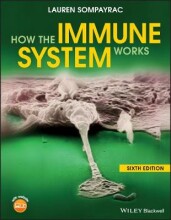L6 Gut-brain axis: brain side
14 important questions on L6 Gut-brain axis: brain side
What are the roles of gut microbiome?
- Important for nutrient absorption
- synthesizer vitamins
- protects against infection by developing and maintaining the epithelial barrier
- critical for development of hypothalamic-pituitary-adrenal (HPA) axis
- critical for development of immune system
- produced hormones, neurotransmitters and their precursors
Which nervous system is in the digestive tract?
The enteric nervous system, located in the digestive tract, is responsible for autonomous functions and can operate independently of the brain and spinal cord
Via what can the gut and the brain communicate?
- Vagus nerve
- Immune system
- cytokines
- Metabolites
- neurotransmitters and precursors
- short chain fatty acids
- HPA axis
- Higher grades + faster learning
- Never study anything twice
- 100% sure, 100% understanding
Some symptoms of Parkinson's disease (PD), the 2nd most prevalent neurodegenerative disease
- Cardinal symptoms
- resting tremor
- rigidity
- Neuropsychiatric symptoms
- executive dysfunction
- slower cognitive speed
- memory problems
- depression
- anxiety
- Sleep problems
- REM sleep behaviour disorder
- Loss of smell
- Gastrointestinal symptoms
- constipation (in 80%)
- delayed gastric emptying
What happens in PD patients [neural alterations]
- projects to dorsal striatum via nigrostriatal pathway, important for motor + cognitive functions
What is the medication for PD
- Levodopa (precursor of dopamine)
- in combination with carbidopa
- Dopamine receptor agonists
- MAO B inhibitors
- Catechol O-methyltransferase (COMT) inhibitors
What happens in PD patients on a more molecular level?
Microglia activation: neuroinflammation
What are the decreased and increased risks of PD
- full vagotomy
- Appendectomy
Increased risk
- Environmental chemicals
- Inflammatory bowel disease
- Viral/bacterial infection
The gut microbiome in PD patients has some genus that are lower and other genus that are higher, name these genus
- Blautia
- Faecalibacterium
- Prevotella
- Coprococcus
Higher
- Lactobacillus
- Bifidobacterium
- Akkermansia
What are beneficial and detrimental effects of diet and gut microbiome in neurodegenerative diseases [in vitro, animal and epidemiological evidence in neurodegeneration]
- fiber
- bioflavonoids
- omega-3 fatty acids
- together --> Mediterranean diet
- + effect on gut microbiome diversity + metabolites
Detrimental effects
- simple sugars
- saturated fats
- salt
- emulsifiers
- (certain) non-caloric sweeteners
- together --> Western diet
- - effect on gut microbiome diversity + metabolites
What are the symptoms and what is the medication of ADHD?
- Attention deficit
- Hyperactivity
- Impulsivity
Medication
- most effective: psychostimulants (methylphenidate, amphetamine) --> blocking re-uptake of dopamine and noradrenaline
What are the risks for getting ADHD?
- Heritable
- LBW (low birth weight)
- FASD (fetal alcohol spectrum diorder)
- Lead
- Smoking
- Perinatal
- Other (Toxins)
What are the future research requirements for ADHD?
- Replication in larger samples
- Actual measurement of gut microbial metabolites related to dopamine precursor synthesis
- Intervention studies: cause or effect?
In humans, probiotics (vs placebo) have shown to ....
- Decrease cognitive reactivity to sad mood (2015)
- Reduce depressive symptoms in depression (2016)
- Reduce depressive symptoms and neural emotion reactivity in patients with irritable bowel syndrome (2017)
- Reduce neural emotion reactivity, versus no-intervention (2013)
- Increase associative learning and alter resting EEG (2016)
However, the precise neurocognitive mechanisms underlying these effects were unclear
The question on the page originate from the summary of the following study material:
- A unique study and practice tool
- Never study anything twice again
- Get the grades you hope for
- 100% sure, 100% understanding






























